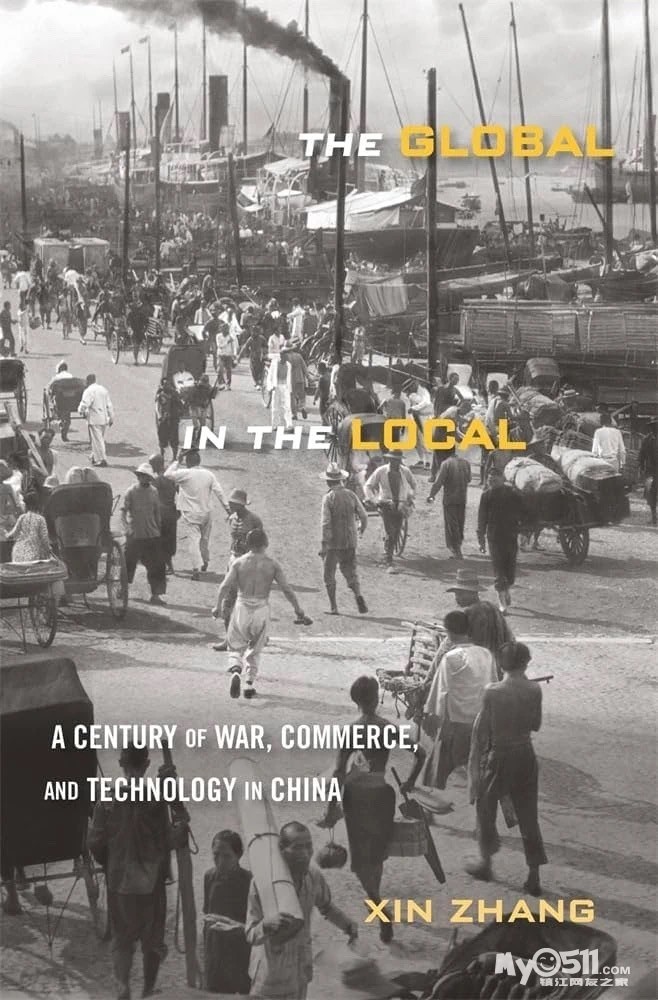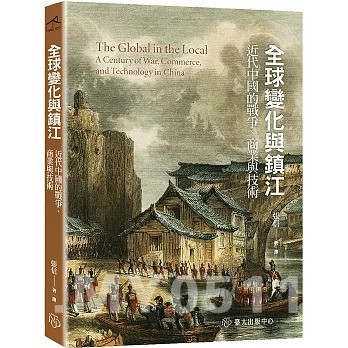
- 来自 北京
- 精华 0
- 注册 2011-7-19
- 行业 教育科研
- 来自 江苏省
- 精华 0
- 注册 2017-12-6
QUOTE:
原帖由 ian_g 于 2025-2-13 08:20 发表
封面上哪有镇江二字
封面确实没有,内容简介有封面上哪有镇江二字
QUOTE:
The story of globalization in the nineteenth and early twentieth centuries as experienced by ordinary people in the Chinese river town of Zhenjiang.
Fear swept Zhenjiang as British soldiers gathered outside the city walls in the summer of 1842. Already suspicious of foreigners, locals had also heard of the suffering the British inflicted two months earlier, in Zhapu. A wave of suicides and mercy killings ensued: rather than leave their families to the invaders, hundreds of women killed themselves and their children or died at the hands of male family members. British observers decried an “Asian culture” of ritual suicide. In reality, the event was sui generis—a tragic result of colliding local and global forces in nineteenth-century China.
Xin Zhang’s groundbreaking history examines the intense negotiations between local societies and global changes that created modern China. In the nineteenth and early twentieth centuries, world-historic political, economic, and technological developments transformed the textures of everyday life in places like Zhenjiang, a midsize river town in China’s prosperous Lower Yangzi region. Drawing on rare primary sources, including handwritten diaries and other personal writings, Zhang offers a ground-level view of globalization in the city. We see civilians coping with the traumatic international encounters of the Opium War; Zhenjiang brokers bankrolling Shanghai’s ascendance as a cosmopolitan commercial hub; and merchants shipping goods to market, for the first time, on steamships.
Far from passive recipients, the Chinese leveraged, resisted, and made change for themselves. Indeed, The Global in the Local argues that globalization is inevitably refracted through local particularities.
Fear swept Zhenjiang as British soldiers gathered outside the city walls in the summer of 1842. Already suspicious of foreigners, locals had also heard of the suffering the British inflicted two months earlier, in Zhapu. A wave of suicides and mercy killings ensued: rather than leave their families to the invaders, hundreds of women killed themselves and their children or died at the hands of male family members. British observers decried an “Asian culture” of ritual suicide. In reality, the event was sui generis—a tragic result of colliding local and global forces in nineteenth-century China.
Xin Zhang’s groundbreaking history examines the intense negotiations between local societies and global changes that created modern China. In the nineteenth and early twentieth centuries, world-historic political, economic, and technological developments transformed the textures of everyday life in places like Zhenjiang, a midsize river town in China’s prosperous Lower Yangzi region. Drawing on rare primary sources, including handwritten diaries and other personal writings, Zhang offers a ground-level view of globalization in the city. We see civilians coping with the traumatic international encounters of the Opium War; Zhenjiang brokers bankrolling Shanghai’s ascendance as a cosmopolitan commercial hub; and merchants shipping goods to market, for the first time, on steamships.
Far from passive recipients, the Chinese leveraged, resisted, and made change for themselves. Indeed, The Global in the Local argues that globalization is inevitably refracted through local particularities.
QUOTE:
中国江边小镇镇江的普通人所经历的 19 世纪和 20 世纪初的全球化故事。
1842 年夏天,当英国士兵聚集在城墙外时,恐惧席卷了镇江。当地人已经对外国人产生了怀疑,但他们也听说了两个月前英国人在乍浦造成的苦难。随之而来的是一波自杀和仁慈杀戮:数百名妇女没有将家人留给侵略者,而是自杀和自杀,杀死了她们的孩子,或者死于男性家庭成员之手。英国观察家谴责了仪式性自杀的“亚洲文化”。实际上,这一事件是特殊的——19 世纪中国地方和全球力量碰撞的悲剧性结果。
张欣的开创性历史考察了地方社会之间的激烈谈判和创造现代中国的全球变化。在 19 世纪和 20 世纪初,世界历史上的、经济和技术发展改变了镇江等地的日常生活肌理,镇江是中国繁荣的长江下游地区的一个中等规模的河流小镇。张教授利用罕见的原始资料,包括手写日记和其他个人著作,对这座城市的全球化进行了初步的了解。我们看到平民应对鸦片战争带来的创伤性国际冲突;镇江中介为上海作为国际商业中心的崛起提供资金;以及商人第一次用轮船将货物运送到市场。
中国人远非被动的接受者,而是利用、抵制并为自己做出改变。事实上,The Global in the Local 认为,全球化不可避免地会通过地方的特殊性而折射出来。
1842 年夏天,当英国士兵聚集在城墙外时,恐惧席卷了镇江。当地人已经对外国人产生了怀疑,但他们也听说了两个月前英国人在乍浦造成的苦难。随之而来的是一波自杀和仁慈杀戮:数百名妇女没有将家人留给侵略者,而是自杀和自杀,杀死了她们的孩子,或者死于男性家庭成员之手。英国观察家谴责了仪式性自杀的“亚洲文化”。实际上,这一事件是特殊的——19 世纪中国地方和全球力量碰撞的悲剧性结果。
张欣的开创性历史考察了地方社会之间的激烈谈判和创造现代中国的全球变化。在 19 世纪和 20 世纪初,世界历史上的、经济和技术发展改变了镇江等地的日常生活肌理,镇江是中国繁荣的长江下游地区的一个中等规模的河流小镇。张教授利用罕见的原始资料,包括手写日记和其他个人著作,对这座城市的全球化进行了初步的了解。我们看到平民应对鸦片战争带来的创伤性国际冲突;镇江中介为上海作为国际商业中心的崛起提供资金;以及商人第一次用轮船将货物运送到市场。
中国人远非被动的接受者,而是利用、抵制并为自己做出改变。事实上,The Global in the Local 认为,全球化不可避免地会通过地方的特殊性而折射出来。
- 来自 江苏省
- 精华 0
- 注册 2016-10-6
- 行业 信息咨询










